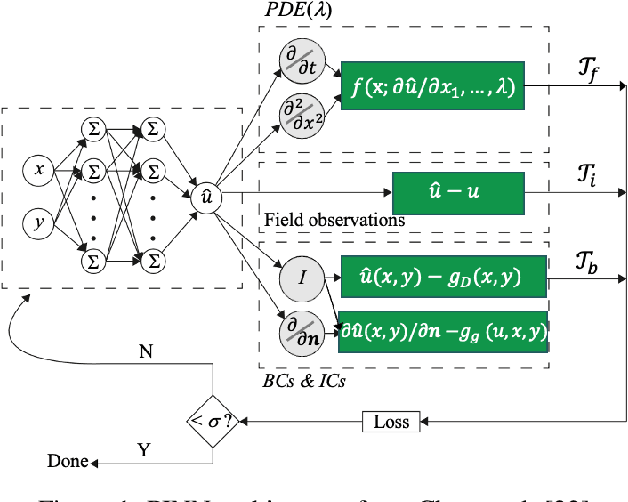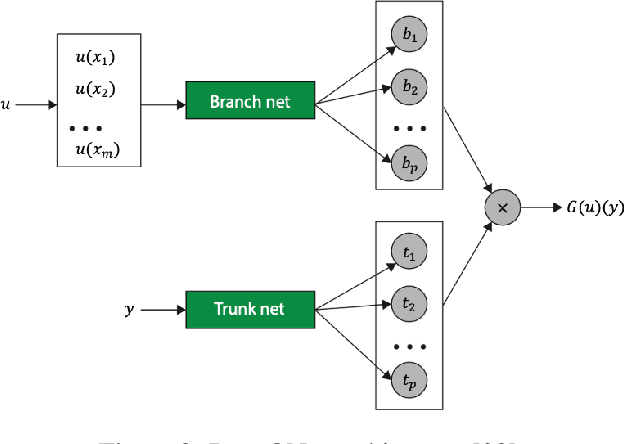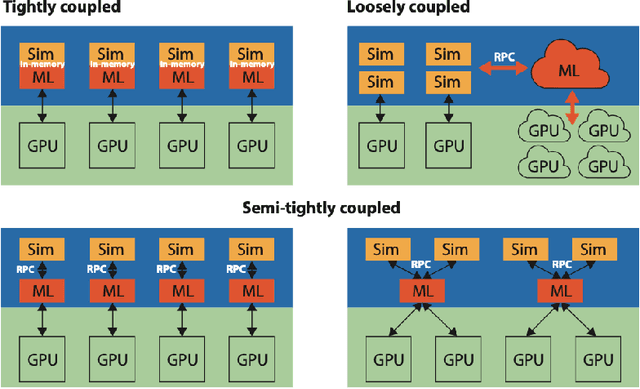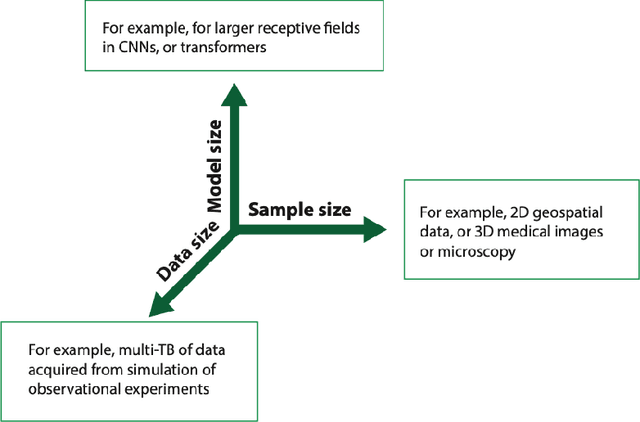Wesley Brewer
AI Benchmark Democratization and Carpentry
Dec 12, 2025Abstract:Benchmarks are a cornerstone of modern machine learning, enabling reproducibility, comparison, and scientific progress. However, AI benchmarks are increasingly complex, requiring dynamic, AI-focused workflows. Rapid evolution in model architectures, scale, datasets, and deployment contexts makes evaluation a moving target. Large language models often memorize static benchmarks, causing a gap between benchmark results and real-world performance. Beyond traditional static benchmarks, continuous adaptive benchmarking frameworks are needed to align scientific assessment with deployment risks. This calls for skills and education in AI Benchmark Carpentry. From our experience with MLCommons, educational initiatives, and programs like the DOE's Trillion Parameter Consortium, key barriers include high resource demands, limited access to specialized hardware, lack of benchmark design expertise, and uncertainty in relating results to application domains. Current benchmarks often emphasize peak performance on top-tier hardware, offering limited guidance for diverse, real-world scenarios. Benchmarking must become dynamic, incorporating evolving models, updated data, and heterogeneous platforms while maintaining transparency, reproducibility, and interpretability. Democratization requires both technical innovation and systematic education across levels, building sustained expertise in benchmark design and use. Benchmarks should support application-relevant comparisons, enabling informed, context-sensitive decisions. Dynamic, inclusive benchmarking will ensure evaluation keeps pace with AI evolution and supports responsible, reproducible, and accessible AI deployment. Community efforts can provide a foundation for AI Benchmark Carpentry.
Intelligent Sampling of Extreme-Scale Turbulence Datasets for Accurate and Efficient Spatiotemporal Model Training
Aug 05, 2025Abstract:With the end of Moore's law and Dennard scaling, efficient training increasingly requires rethinking data volume. Can we train better models with significantly less data via intelligent subsampling? To explore this, we develop SICKLE, a sparse intelligent curation framework for efficient learning, featuring a novel maximum entropy (MaxEnt) sampling approach, scalable training, and energy benchmarking. We compare MaxEnt with random and phase-space sampling on large direct numerical simulation (DNS) datasets of turbulence. Evaluating SICKLE at scale on Frontier, we show that subsampling as a preprocessing step can improve model accuracy and substantially lower energy consumption, with reductions of up to 38x observed in certain cases.
A Digital Twin Framework for Liquid-cooled Supercomputers as Demonstrated at Exascale
Oct 07, 2024Abstract:We present ExaDigiT, an open-source framework for developing comprehensive digital twins of liquid-cooled supercomputers. It integrates three main modules: (1) a resource allocator and power simulator, (2) a transient thermo-fluidic cooling model, and (3) an augmented reality model of the supercomputer and central energy plant. The framework enables the study of "what-if" scenarios, system optimizations, and virtual prototyping of future systems. Using Frontier as a case study, we demonstrate the framework's capabilities by replaying six months of system telemetry for systematic verification and validation. Such a comprehensive analysis of a liquid-cooled exascale supercomputer is the first of its kind. ExaDigiT elucidates complex transient cooling system dynamics, runs synthetic or real workloads, and predicts energy losses due to rectification and voltage conversion. Throughout our paper, we present lessons learned to benefit HPC practitioners developing similar digital twins. We envision the digital twin will be a key enabler for sustainable, energy-efficient supercomputing.
Scalable Artificial Intelligence for Science: Perspectives, Methods and Exemplars
Jun 24, 2024



Abstract:In a post-ChatGPT world, this paper explores the potential of leveraging scalable artificial intelligence for scientific discovery. We propose that scaling up artificial intelligence on high-performance computing platforms is essential to address such complex problems. This perspective focuses on scientific use cases like cognitive simulations, large language models for scientific inquiry, medical image analysis, and physics-informed approaches. The study outlines the methodologies needed to address such challenges at scale on supercomputers or the cloud and provides exemplars of such approaches applied to solve a variety of scientific problems.
 Add to Chrome
Add to Chrome Add to Firefox
Add to Firefox Add to Edge
Add to Edge